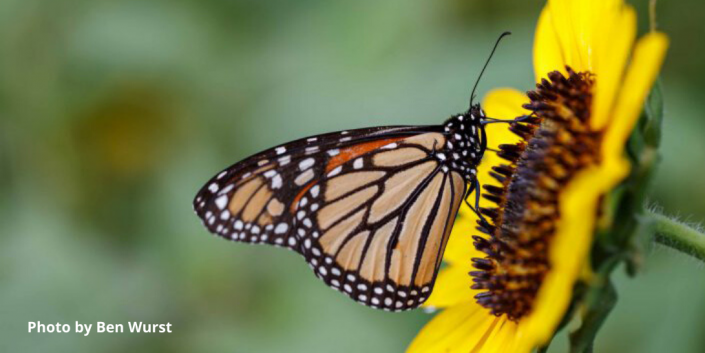New Jersey’s Wildlife in the Time of COVID-19 – Part 2
by David Wheeler
COVID-19 has changed our lives in virtually every possible way over the last few months. Our relationship to wildlife is no different. This three-part series explores the impacts of the COVID-19 pandemic and shutdown on wildlife in New Jersey and across the world. Read Part 1 here, and check out our podcast on COVID-19 and wildlife.
Wildlife from your Window
We have received more reports than ever from people seeing wildlife species they hadn’t seen before, and behaviors they had never previously observed, much of it from their own yards. People are tending to gardens more than ever before, and enjoying seeing the attendant pollinators.

Serious birdwatchers are suddenly enjoying spring migration as a near 24-7 activity now that many of them work from home with uninterrupted birding time – finding new migrants in their yard for the first time. Arrivals of migrants are now celebrated in real time. Walking my dogs, I noticed gray catbirds for the first time this year – and by the time I was back inside, several birders across the state had excitedly posted their own sightings noting the same.

This marks a different kind of increase in wildlife – not a species expanding its range or moving into new areas, but we humans just having more opportunity and time to observe wildlife.
And it’s not just out our windows – it’s through our computer and phone screens. Our webcams for bald eagles, peregrine falcons, and ospreys have been more watched than ever this year. Zoo and aquarium videos of animals in their newly empty surroundings are going viral with regularity.
Other social animals in zoos like orangutans and otters, have missed the interaction with their keepers during these times, unwittingly reflecting back to us our own feelings.
All of this speaks to the connections with nature that have so often severed in recent decades. It’s become easier than ever to grow up feeling that nature and wildlife are something separate and scary, or something you don’t give thought to unless you go somewhere faraway and exotic.
Conversely, feeling connected to nature has been shown to benefit people’s health, mindset, and feelings of self-esteem. That connection has regenerated for so many people over the past two months. It’s ironic that it took a quarantine shutdown keeping us all indoors to remind us how much we love to be outside!
Stay tuned for Part 3 of New Jersey’s Wildlife in the Time of COVID-19, which will explore the threat of COVID-19 to wildlife globally, and lessons learned about the connection between habitat loss and human health. You can also listen to our COVID-19 podcast here.
David Wheeler is the Executive Director of Conserve Wildlife Foundation and the author of Wild New Jersey: Nature Adventures in the Garden State.

Discover more from Conserve Wildlife Foundation of NJ
Subscribe to get the latest posts sent to your email.